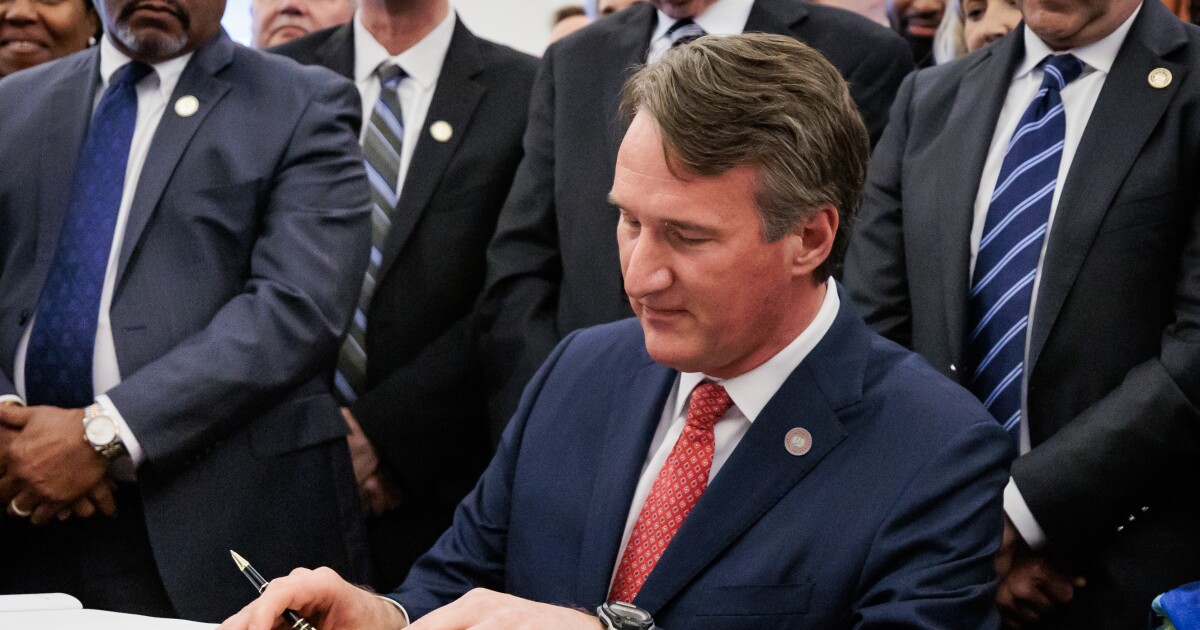Dozens of bills affecting Virginia’s system for providing home and community care to people with developmental disabilities take effect Monday. The bills change limitations on the waiver program and are intended to free up hundreds of millions of dollars in additional funding for the new budget year.
The additional $247 million will go toward developmental disabilities (DD) waivers, which allow people to receive care in their home or community rather than in a medical facility.
These changes come after years of efforts to address deficiencies in the home and community care system.
Payment rates, home care workforce shortages, and time constraints all posed challenges to a system in which family members often provided care themselves.
“This has been an issue that I’ve been very interested in for as long as I’ve been involved in Virginia politics,” state Sen. David Satterline (R-Roanoke) said at a bill-signing ceremony in Salem on Tuesday. “I was told, ‘That’s not going to happen. We need to be very careful about talking about this and getting people’s hopes up.'”
In 2012, the U.S. Department of Justice found Virginia was failing to provide services to people with developmental disabilities. The findings came after an investigation into whether the state was meeting the requirements of the Americans with Disabilities Act and a U.S. Supreme Court ruling that found segregating people with developmental disabilities a violation of their civil rights.
Tonya Miller, executive director of Arc of Virginia, which serves people with intellectual and developmental disabilities, said Virginia is moving away from institutions and traditional settings.
“People are saying they want to live a life like mine and like you, they want the same things as us, and it’s important that Virginia builds the support systems to help people do that,” she said.
Suterlein introduced SB 676, a bill that would temporarily extend the duration of the exemption from six months to one year.
In some cases, families can’t find someone they can hire to provide in-home care, and waivers expire during the search. Gov. Glenn Youngkin said in his State of the State address that the waiting list for certain waivers was more than 3,000 people as of January.
Miller said the measure would also bring home care providers into the system.
Without in-home care providers, many parents were caring for their children for the time being, which made it hard to stay employed, said Michaela Lieberman Martin, interim director of the Health Justice and Public Benefits Program at the Law and Justice Center.
“As a result, they faced homelessness and possible eviction,” she said. “We’re talking about families who are caring for people with very poor health and special behavioral health needs, and living in unstable housing puts them at higher risk for further health problems.”
Home- and community-based services were expanded under the pandemic public health emergency to allow families to care for relatives with developmental or intellectual disabilities, a provision that expired in November.
Four bills being implemented address the issue of in-home care provided by relatives. One bill would direct the Department of Health Assistance Services to ask the federal government to allow families to be compensated for 40 hours of care per child. Another would allow family members to provide care and be compensated even if they are able to hire an in-home care provider.
During the bill signing ceremony, Youngkin spoke about 18 bills relating to people with disabilities in Virginia.
“I’m blown away by the literal lack of partisanship,” he told the Salem group, “and the amount of effort that went into making it happen.”
Other bills that will be enacted include a bill requiring law enforcement agencies to provide training on how to communicate with people with autism spectrum disorder, a pilot program for all-terrain power wheelchairs in state parks, and a bill establishing voting rights for caregivers who participate in meetings remotely under the Virginia Freedom of Information Act.

